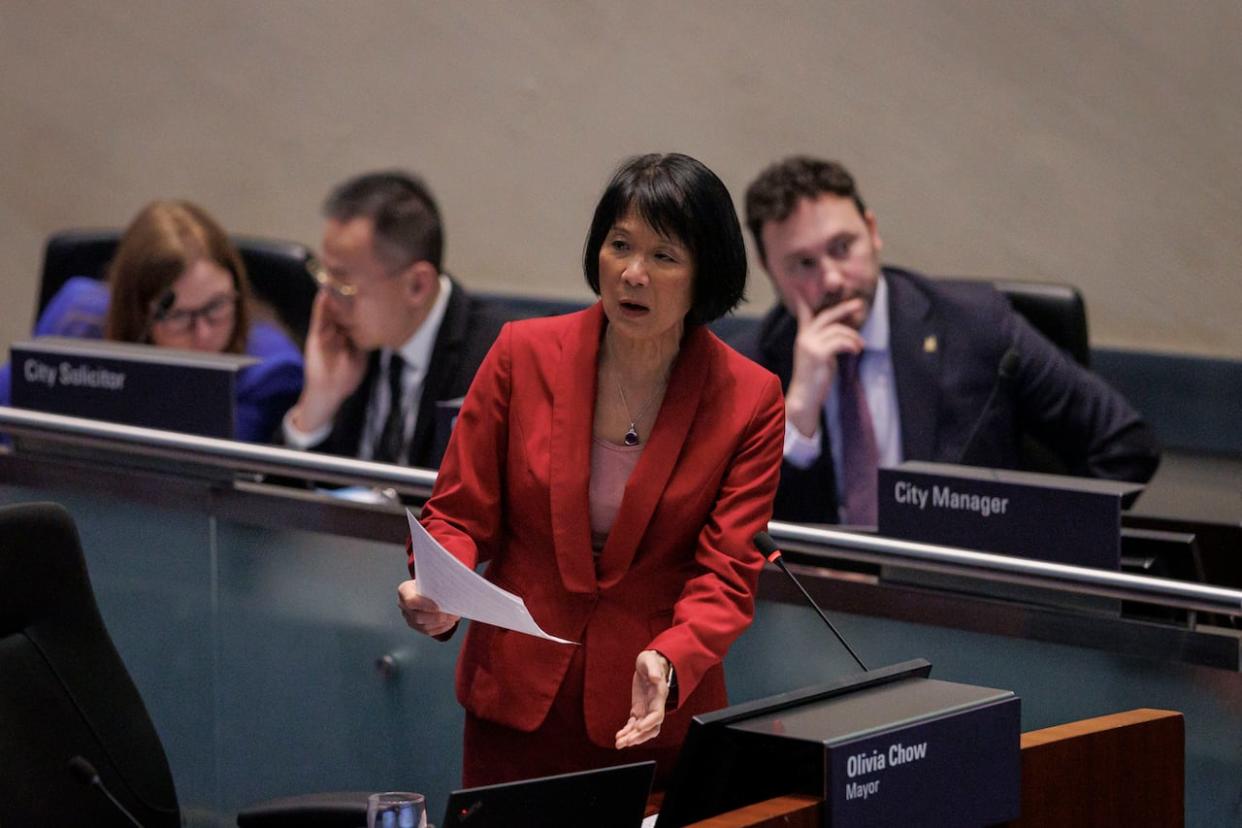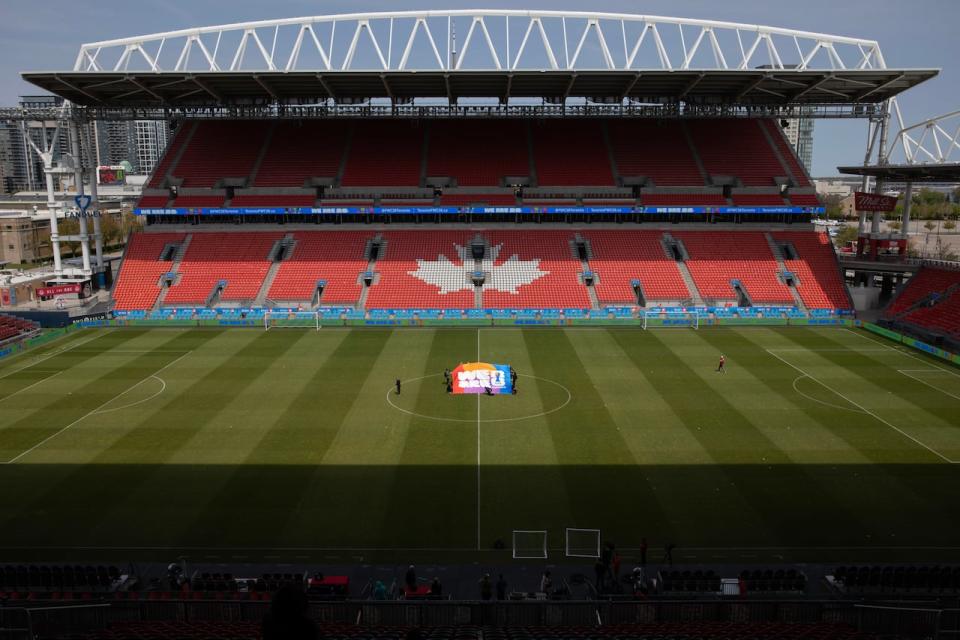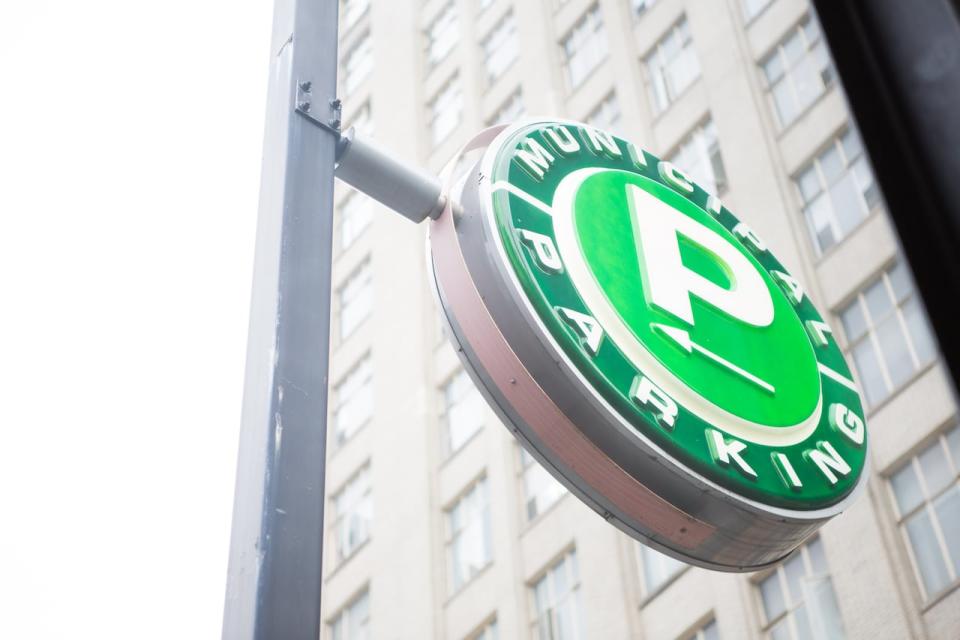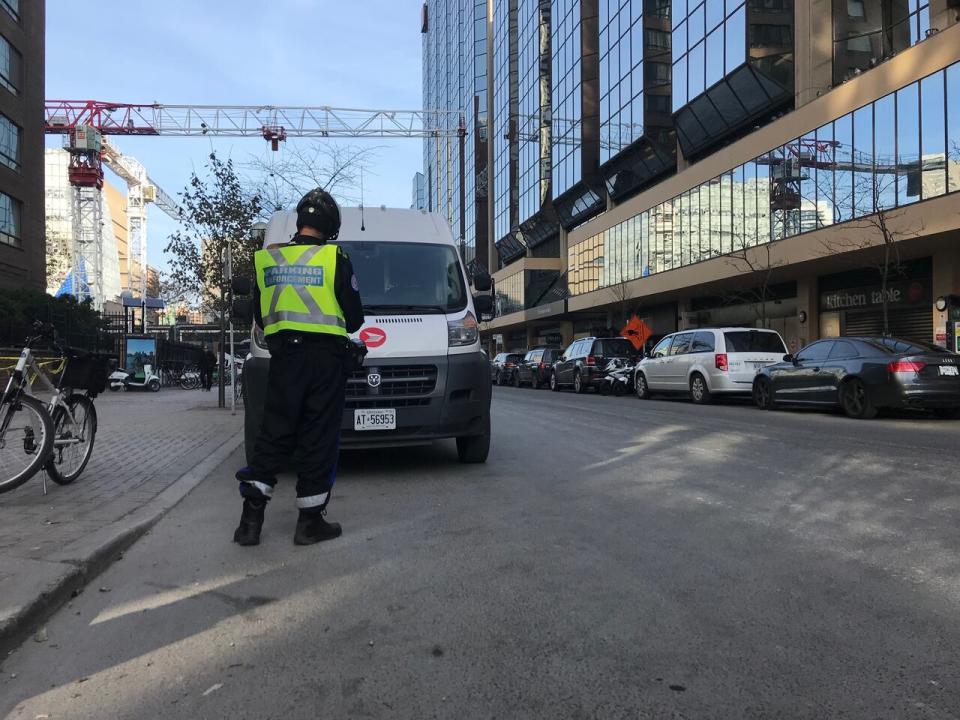FIFA, housing and parking fines top Toronto council's busy agenda

Toronto's expensive World Cup hosting duties, the price of a parking ticket and a plan to convert some city parking lots to housing are all up for significant debates as council kicks off a three day meeting today.
This will be the first time city councillors have met since passing the 2024 budget which contained the largest property tax hike in decades. The city's constrained finances will also cast a shadow over the debate this week.
Here's what to watch for during the session:
Ballooning costs to host FIFA World Cup
City councillors are set to dig into a staff update on Toronto's hosting duties for six matches during the 2026 FIFA World Cup.
A staff report shows that the expense to taxpayers has jumped to $380 million, up from $300 million a year ago. Rising security costs, inflation and the fact that Toronto will now host one more game than anticipated have all contributed to the rising price tag.
The meeting comes as community groups gathered called on the city to ensure residents benefit from the World Cup games after years of reports that point to locals and workers in host countries suffering as a result. Mayor Olivia Chow also announced she is changing the structure of the city's FIFA-dedicated teams to help deliver on the games.
Chow has pushed for more oversight of the hosting agreement. Her powerful executive committee recently denied a request from city staff for delegated authority to negotiate many remaining services without the usual council approvals.
"Will I want to see $380 million being spent on it? No," Chow said of the hosting duties. "Would I have signed the deal had… none of the provincial and the federal government contributions been locked down? No."
City manager Paul Johnson said the city has a plan to cover that cost escalation with some of the funding coming from other levels of government.
"We will find other ways to bridge so we shouldn't be heading back to the property taxpayers in Toronto for any of that gap," he told CBC Radio's Metro Morning.

Toronto city councillors will look at cost escalation surrounding the 6 FIFA World Cup games it will host in 2026. BMO Field, seen here, will be the site of the games and must be expanded to accommodate the event. (Nav Rahi/CBC)
Coun. Josh Matlow said Tuesday that he's not sure the city can do much to alter the signed agreement with FIFA , and he expects some of that frustration to spill over into the meeting.
"I think there'll be more hyperbole and speeches than debate, the deal was done," he said. "So, I don't see many options for city council."
But Matlow says the city can plan to generate revenue from the games. He says he hopes council will back his motion asking city staff to begin that work to help offset the cost to taxpayers.
"Everyone in the private sector, including, I expect, kids, are going to be opening up lemonade stands and being entrepreneurial, trying to find ways to bring in revenue," he said. "When we've got games in Toronto… the city should be doing no less."

Toronto councillors will consider a plan to convert some city-owned lots to build housing a meeting later this month. (Katherine Holland/CBC)
Changes to city parking lots to address housing crisis
City councillors will consider converting up to 130 parking lots on prime land to build new homes.
The plan would see staff conduct an inventory of city owned facilities, including parking lots, to see what might be suitable for conversion to housing.
The mayor acknowledges that re-purposing city parking lots to create more dense communities, specifically around transit stations, has been planned for decades. But, she says progress has been frustratingly slow and this city council needs to change that.
"In the days that I was a local councillor, we were talking about it and I was impatient back then," she said.
"I'm more impatient now. And now that I'm a mayor, I can do more."
City staff say in a report that Toronto owns 300 parking lots, typically managed by the Toronto Parking Authority, many of which wouldn't be suitable for conversion. However, staff say their examination of those lots shows 130 could potentially support housing.
Of those 130, 74 are in what the staff describe as "Major Transit Station Area zones," meaning they are a 10-minute walk from a subway, light rail or dedicated busway.

A Toronto police parking enforcement officer issues a ticket on Edward Street, north of Yonge-Dundas Square. (Nicole Brockbank/CBC)
Parking fines set to more than double
Fines for over 120 types of parking violations could be going up across the city, with many potentially doubling as Toronto plays catch up with communities with higher rates.
City staff recommend hiking fines for the parking violations because many haven't been updated in years. This comes at a time when staff say parking violations have been trending up after the pandemic.
Many of the fines would double, jumping to $75 from the current $30. That includes fines for not paying a parking fee at a pay and display machine, as well as fines for parking on a street without a valid permit.
A fine for parking within three metres of a fire hydrant would also increase to $125 from $100. The ticket for parking a vehicle in a bike lane would jump to $200 from $150.
Toronto could generate an additional $40 million a year in revenue from the increase, staff say. If council adopts the increases, they would go into effect Aug. 1.

